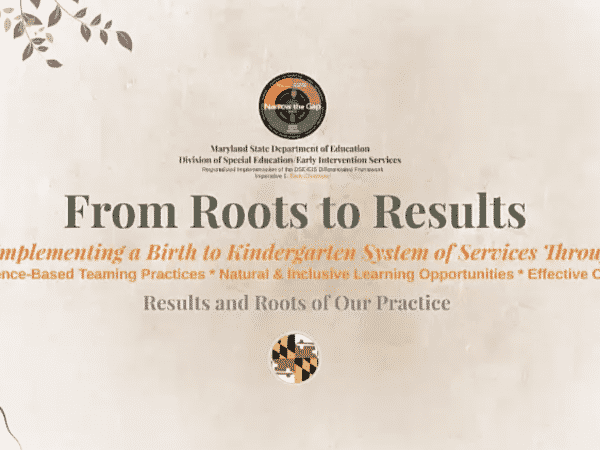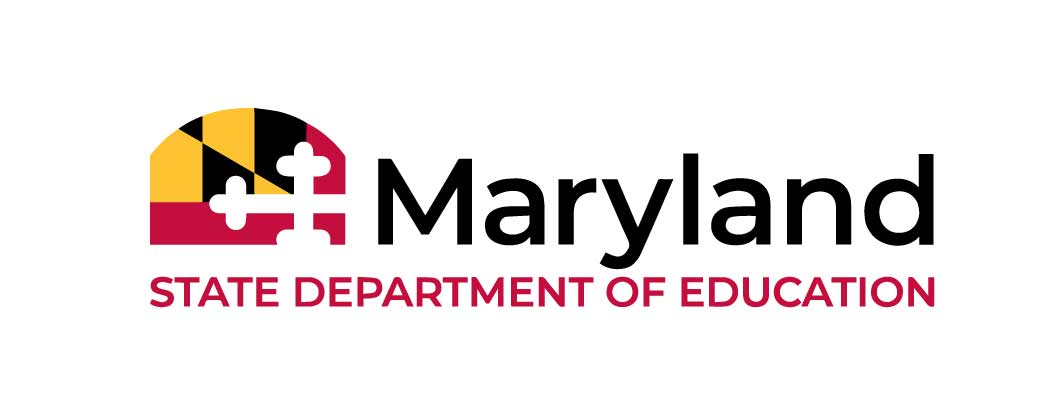From Roots to Results: Implementing a Birth to Kindergarten System of Services Webinar Series

The Maryland State Department of Education (MSDE), Division of Special Education created a series of webinars to continue the discussions that kicked off during the October 2017 Early Childhood Professional Learning Opportunities (PLOs). Based on the imperatives outlined in the Division of Special Education’s Strategic Plan, early childhood professionals across the state are implementing strategies to shift how early intervention and preschool special education services are provided in their communities.
Part 1: Results and Roots of our Practice
This opening presentation highlights the overarching goals (results) of all early intervention and preschool special education programs, as well as the evidence-based principles (roots) that are the foundation of early childhood special education practices.
Part 2: Evidence-based Teaming Practices
This presentation examines evidence-based teaming practices that promote and sustain collaborative adult partnership, relationships, and ongoing interactions to ensure that programs and services achieve the desired child and family outcomes and goals.
Part 3: Natural and Inclusive Learning Opportunities
This presentation reflects the core mission of early childhood special education through the use of natural and inclusive learning opportunities within the child and family’s everyday environments, including classrooms. Effective IFSP/IEP development through authentic and formative assessment to support effective, functional routines-based IFSPs and standards-aligned IEPs including COS ratings with fidelity is emphasized. IFSP/IEP implementation supports integrated service delivery maximizing children’s full, meaningful, and active participation in natural and inclusive learning opportunities to achieve positive results. Finally, IFSP/IEP evaluation highlights the importance of data-informed decision making to inform intervention and instruction through progress monitoring and formative assessment.
Part 4: Effective Coaching
This presentation reveals how the quality of the relationships and interactions among the adults involved with supporting children affects the success of services and programs. Coaching is the capacity-building adult learning strategy used to promote the learner’s ability to reflect on actions as a means to determine the effectiveness of an evidence-based practice, develop a plan for refinement, and how to use a strategy/practice in future situations.
Part 5: Resources for Implementation
This presentation highlights the resources available to local programs to support the implementation of evidence-based teaming practices, IFSP/IEP development, implementation and evaluation, and effective coaching.
